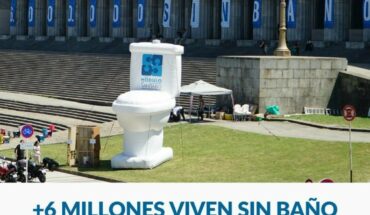“We’re going to have to learn to live in ‘Covid Mode’.” This is what the Under-Secretary of Public Health Paula Daza referred to the lifestyle that will be seen in the country on Sunday once progress was made in the deconfunding plan announced by the Government, which aims to strengthen self-care actions against the Covid-19 as restrictions are relaxed.
To this end, yesterday the Ministry of Health published a guide that brings together 133 recommendations to prevent contagion when quarantines cease and daily activities are resumed.
In 29 pages, the manual addresses measures that can be taken both at home and in the workplace, in public spaces and in various commercial venues. In all, the emphasis is on a continuous disinfection of hands and the implements that will be touched, in addition to maintaining social estrangement.
But there are also some surprising ones, such as the advice not to share school supplies and the sneaking up in educational establishments; avoid occupying salt and oil dispensers in restaurants; not accept 3D lenses delivered by cinemas or hearing aids that hand out museums; and avoid touching the holy water or kissing the religious figures of the churches.
Rodrigo Cruz, an infectologist at the University of Valparaiso, explained that these actions share the same risk: they are a “common source” of contagion as they are elements that may have been used by the infected. “You have to avoid using objects that have come into contact with several people, to try to minimize the transmission of this virus,” he emphasized.
For the same condition the guide suggests not using the lockers of sports venues, spaces in which it also advises not to enter the dressing rooms or use the showers. The call is to bathe in the house and wash the clothes used.
Other premises that address the manual are the shopping centers, where it is advisable to avoid rush hours and plan the procedures and purchases to be in place for the shortest possible time. This is despite health minister Enrique Paris saying yesterday on Cooperative radio that he sees “pretty difficult and risky” reopening the malls, as people “don’t keep physical estrangement” in these facilities.
And outdoors?
In open spaces it is suggested not to use the benches, children’s games and machines to exercise the squares, as well as avoid calling by public telephones in the areas that still have them and not drinking water from the drinking fountains.
At fairs it is advised not to consume food samples; on public transport it is called to use alcohol gel after touching the handrails; and whenever you leave home it is suggested to wear long hair taken or tied up. Cruz explains that being loose can rub contaminated surfaces and transport the virus.
Over social gatherings, it is called to prioritize outdoor meetings, but if it is in enclosed enclosures they must have good ventilation. If there are children, they are advised not to share toys.
The document includes sanitary tips when cooking or returning home, such as taking off your clothes and placing them in a secluded area. The guide is in www.minsal.cl.
translated from Spanish: With hair taken and unshared school supplies: Minsal teaches what life will be like without confinements
July 22, 2020 |





